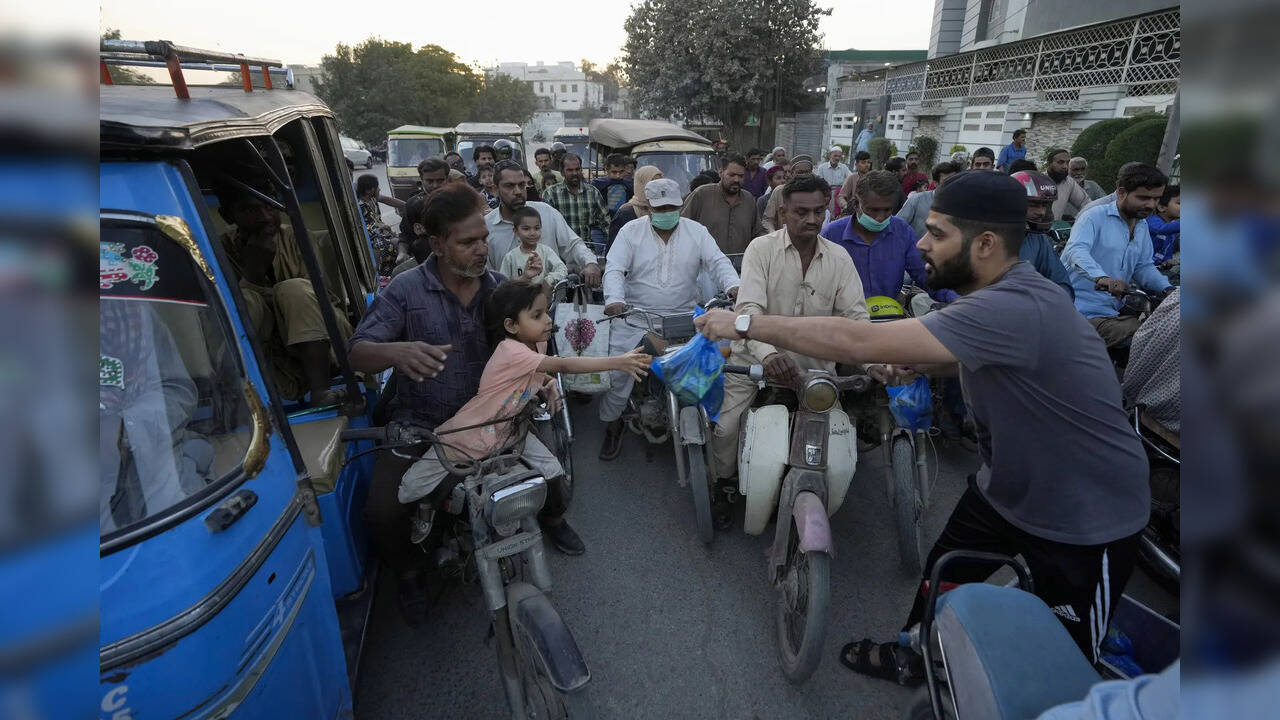
Pakistan Economy (AP Photo/Fareed Khan)
Pakistan’s economic woes are worsening as the nation’s trade deficit nearly hit an alarming $3.34 billion in September. Latest figures reveal exports fell almost 12 per cent to $2.5 billion, while imports surged 14 per cent to $6 billion, underscoring a growing imbalance that is putting further strain on the fragile economy, according to the IANS report.
During the first quarter of fiscal year 2025, Pakistan’s trade gap expanded sharply to over $9.3 billion, an increase of 33 per cent compared to the previous year. This sharp rise highlights a critical issue: the country is importing far more than it can afford, while its export sector continues to contract, the report added. This imbalance is creating mounting pressure on foreign reserves and weakening economic stability, according to a report in Maldives Insight.
Economic Revival Promises Fall Short
Despite high hopes pinned on the Special Investment Facilitation Council (SIFC), launched by Field Marshal Syed Asim Munir, efforts to attract foreign investment have faltered. Designed as a one-stop platform for foreign investors and managed by the military, SIFC was promoted as a symbol of the army’s ability to fix Pakistan’s economic troubles, which politicians allegedly failed to resolve.
However, more than a year on, SIFC has generated limited meaningful investments. Investors from the Gulf have gravitated toward more stable markets, Western companies are wary of Pakistan’s uncertain regulatory landscape, and Chinese firms remain focused mainly on projects linked to the China-Pakistan Economic Corridor (CPEC), added the report. While these initiatives benefit the military and Chinese enterprises, they offer minimal advantage to Pakistan’s broader economy or its citizens.
Military Priorities Overshadow Economic Growth
Meanwhile, Pakistan’s defence budget has surged by 20 per cent to nearly $9 billion, drawing resources away from critical sectors like health, education, and infrastructure. “The priorities are unmistakable: the generals ensure that the army is well-fed, equipped, and funded, while ordinary citizens are left to endure power outages, crumbling schools, and unaffordable food,” the report explains.
With a narrow tax base and only a fraction of the population contributing direct taxes, Pakistan’s government continues to funnel scarce revenues into the military rather than reforming the economic system. This imbalance stifles growth by starving productive sectors of essential support, states the report.
The military’s growing grip over industries such as cement, fertiliser, banking, and agriculture has not translated into sustainable economic progress. Instead, the focus on control and security undermines efficiency and productivity, keeping Pakistan reliant on repeated bailouts from the International Monetary Fund.
